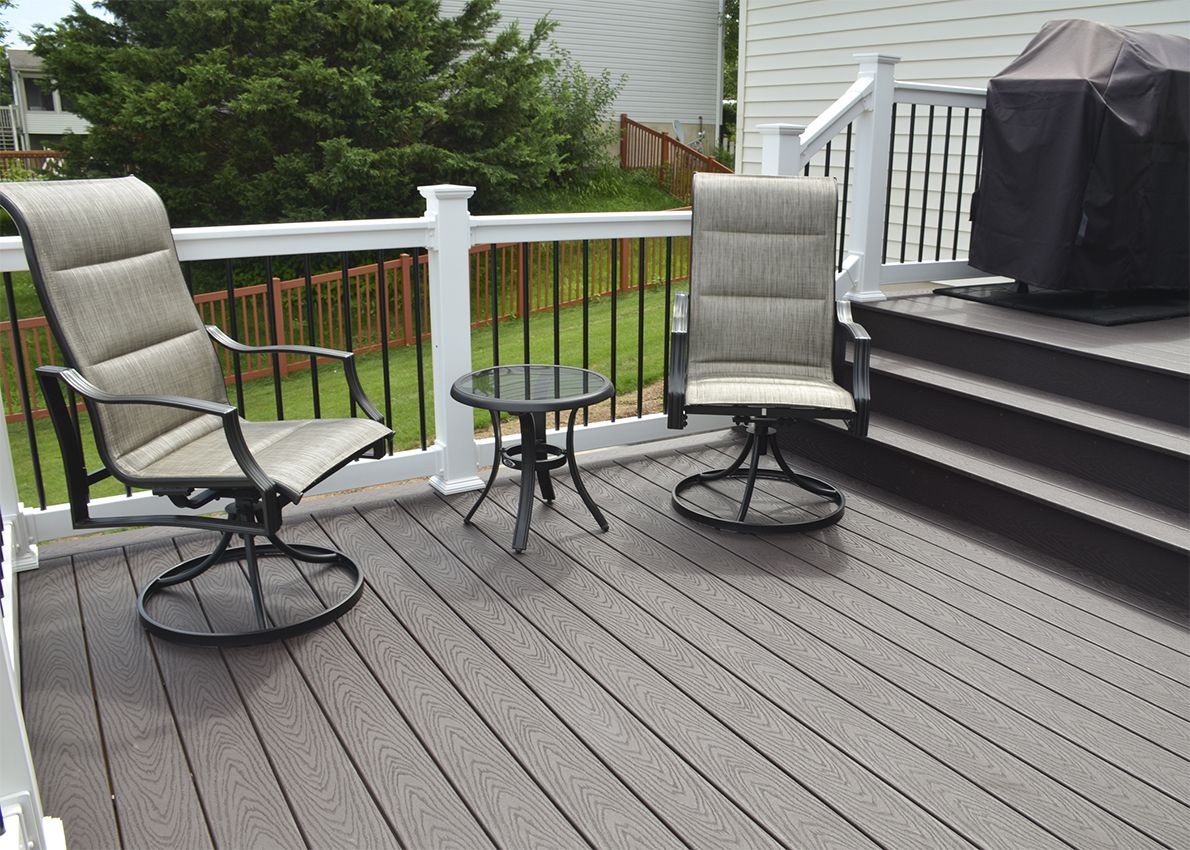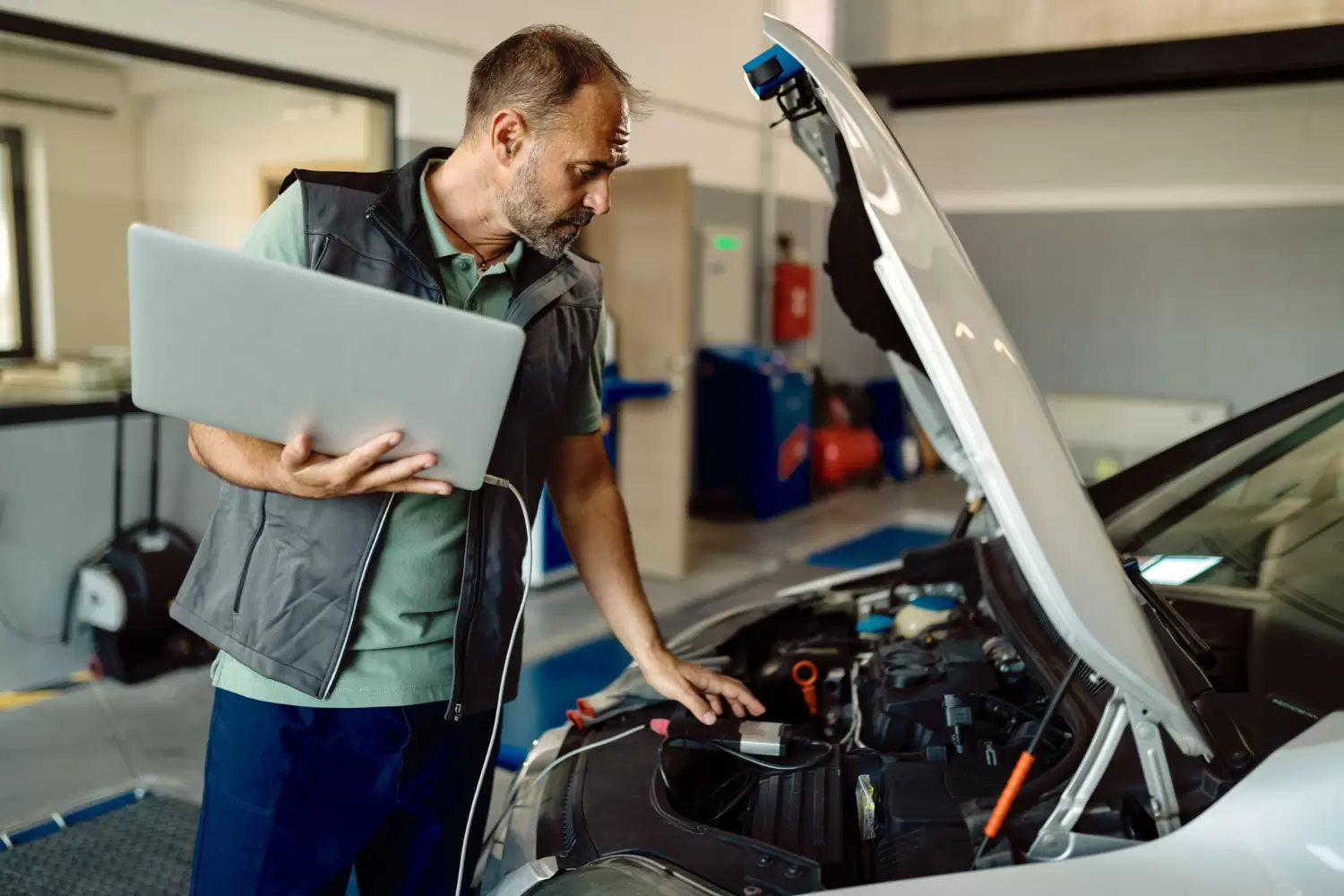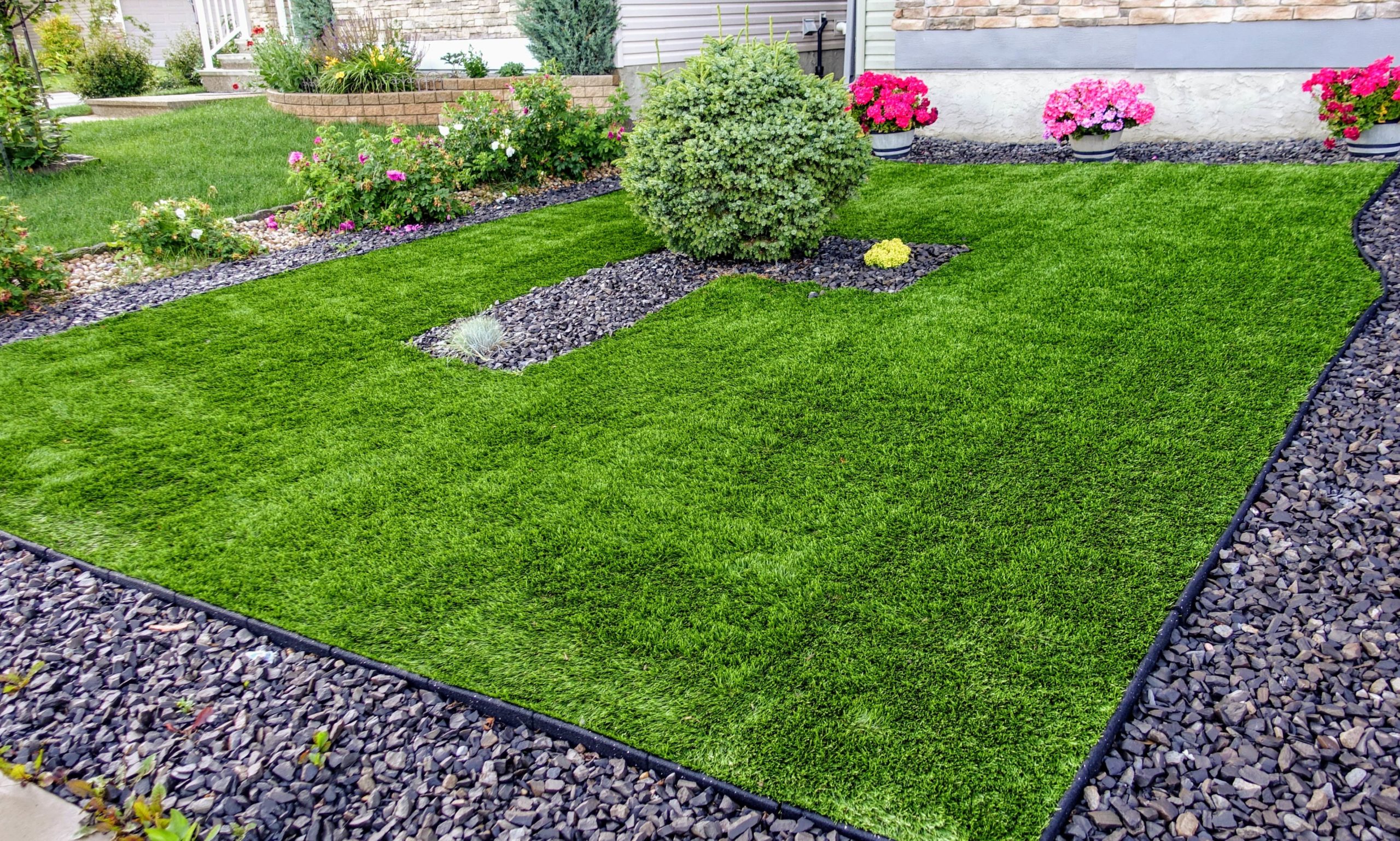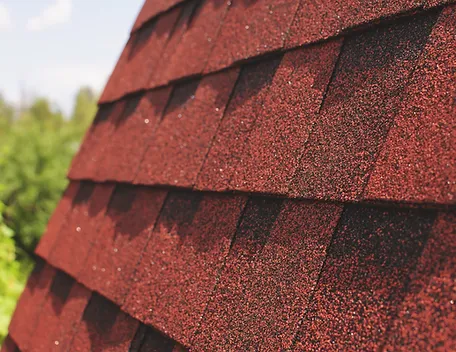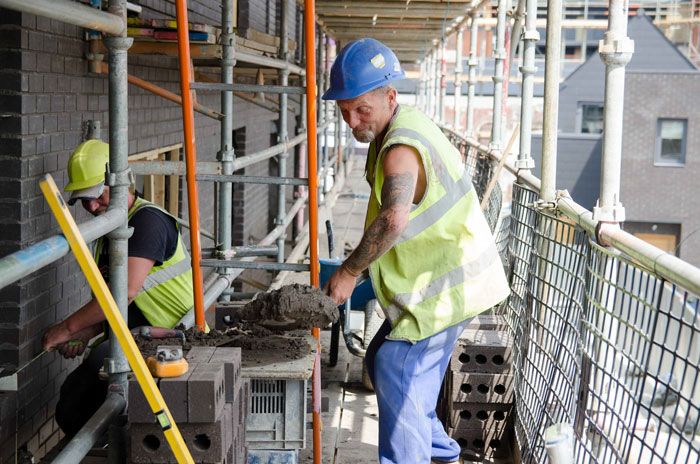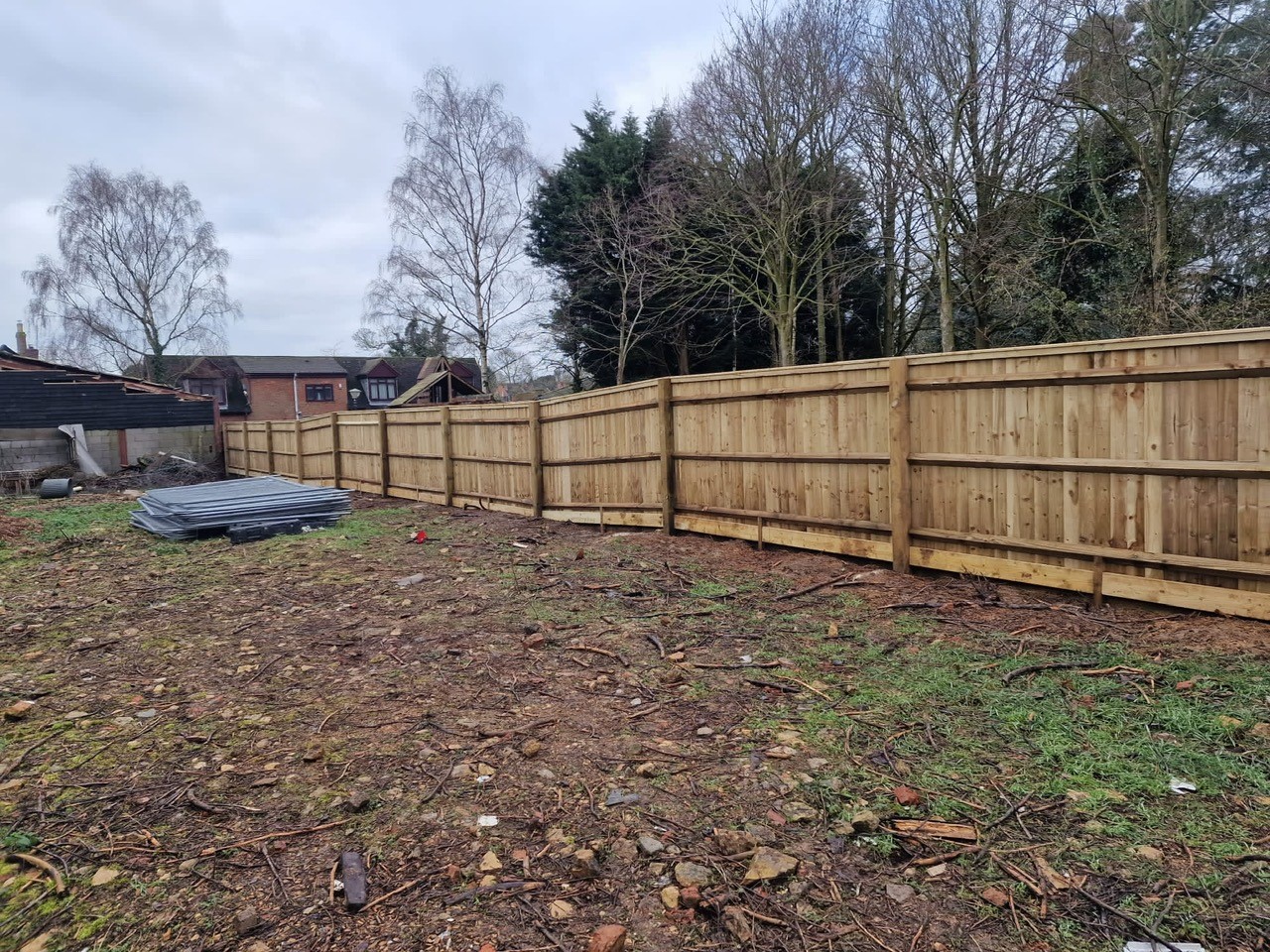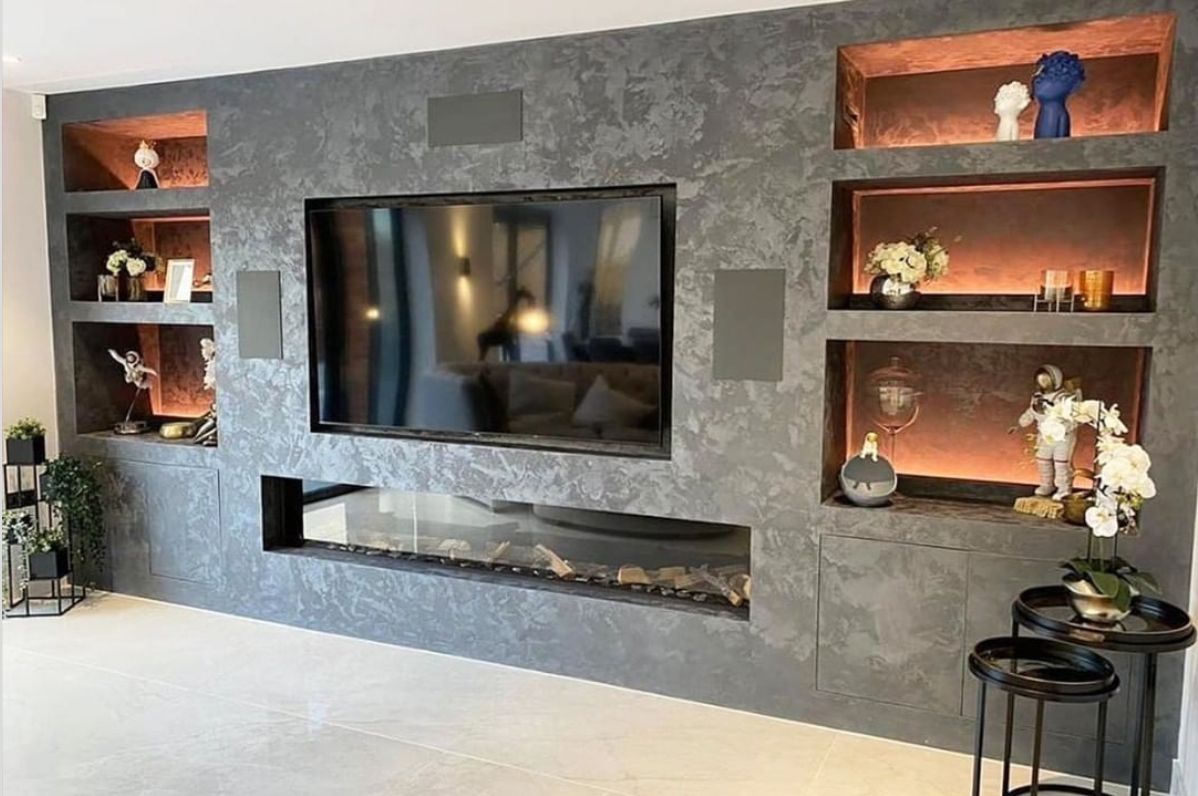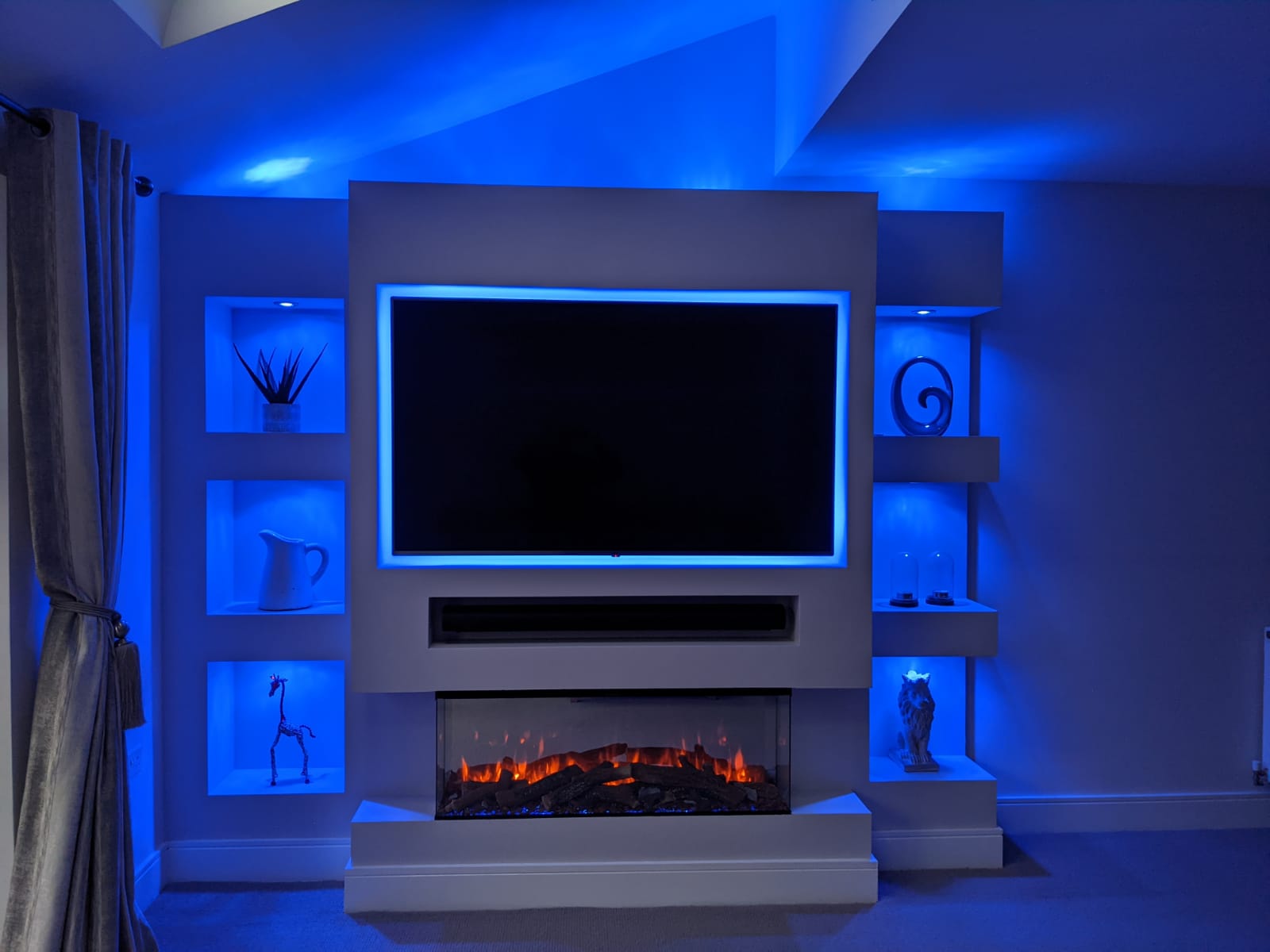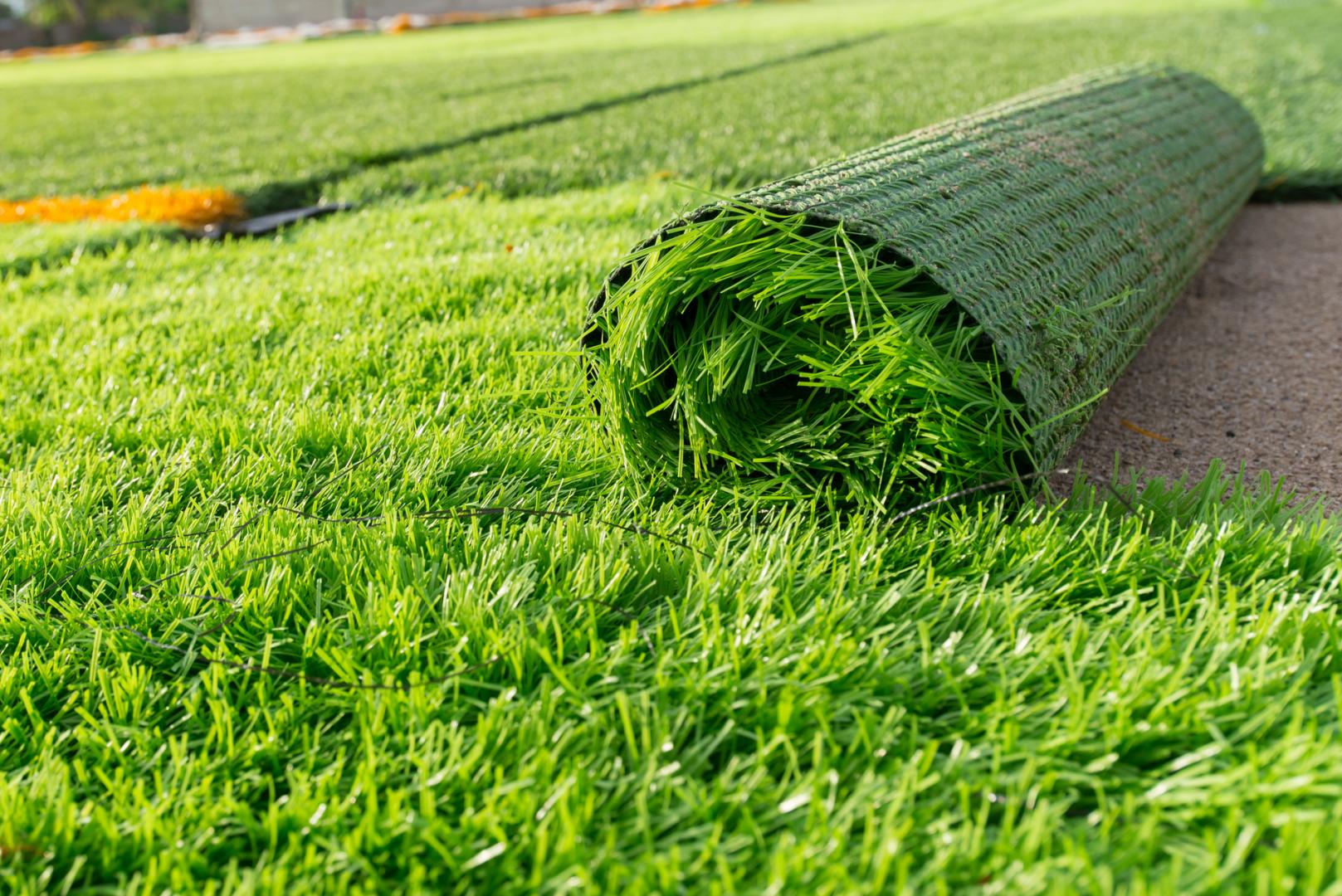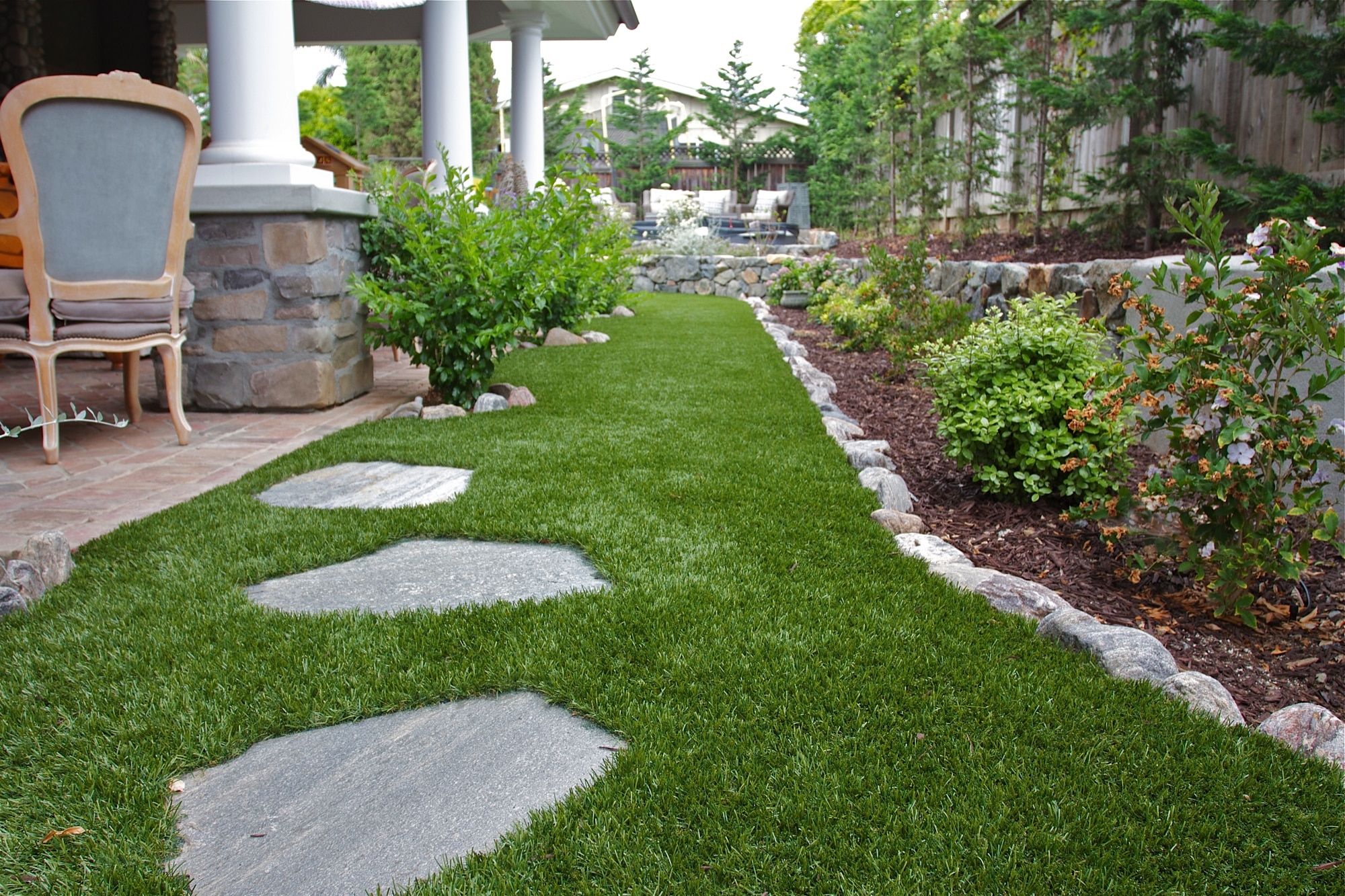Composite decking is a versatile and durable material that can transform your outdoor space into a stylish and functional area. Whether you want to create a cozy retreat, a space for entertaining, or a beautiful garden feature, composite decking york offers a wide range of possibilities. Here are 10 creative ideas for incorporating composite decking into your York garden to enhance its beauty and usability.
1. Multi-Level Decking for Different Zones
Create a multi-level deck to divide your garden into different zones for relaxation, dining, and entertainment. Multi-level decking adds depth and dimension to your outdoor space, making it feel more expansive and dynamic. Use the different levels to create a cozy seating area on one level and a dining space on another, all connected by steps or wide walkways.
- Tip: Add built-in planters or benches on each level to maximize space and integrate greenery into the design.
2. Wrap-Around Deck for Seamless Outdoor Living
Extend your living space with a wrap-around composite deck that connects the front and back of your home. This design is perfect for homes in York with a garden that wraps around the property, offering easy access to both areas and creating a flow between indoor and outdoor living spaces.
- Tip: Include sliding doors or bi-fold windows that open directly onto the deck to bring the outdoors in and vice versa.
3. Decking with Integrated Lighting
Add a touch of elegance and safety to your garden by integrating lighting into your composite decking. LED strip lights, step lights, or recessed deck lights can illuminate the space at night, creating a warm and inviting atmosphere. This idea is especially useful for evening gatherings and outdoor dining.
- Tip: Use solar-powered lights for an eco-friendly option that requires no wiring.
4. Rooftop Deck for Elevated Views
If you live in a multi-story home or have a garden with a steep slope, consider installing a rooftop deck. Composite decking is ideal for creating a low-maintenance rooftop space where you can enjoy beautiful views of York and your surrounding landscape. Add comfortable seating, a small bar area, or even a hot tub to make the space more functional.
- Tip: Ensure the rooftop is structurally sound and weatherproof before installing decking.
5. Decking with Built-In Seating
Maximize your deck’s functionality by incorporating built-in seating. Composite decking is sturdy enough to support custom seating arrangements that blend seamlessly into the design. Whether it’s a wraparound bench or built-in lounge chairs, this feature eliminates the need for extra furniture and keeps the space tidy.
- Tip: Add cushions or throw pillows to make the seating more comfortable and inviting.
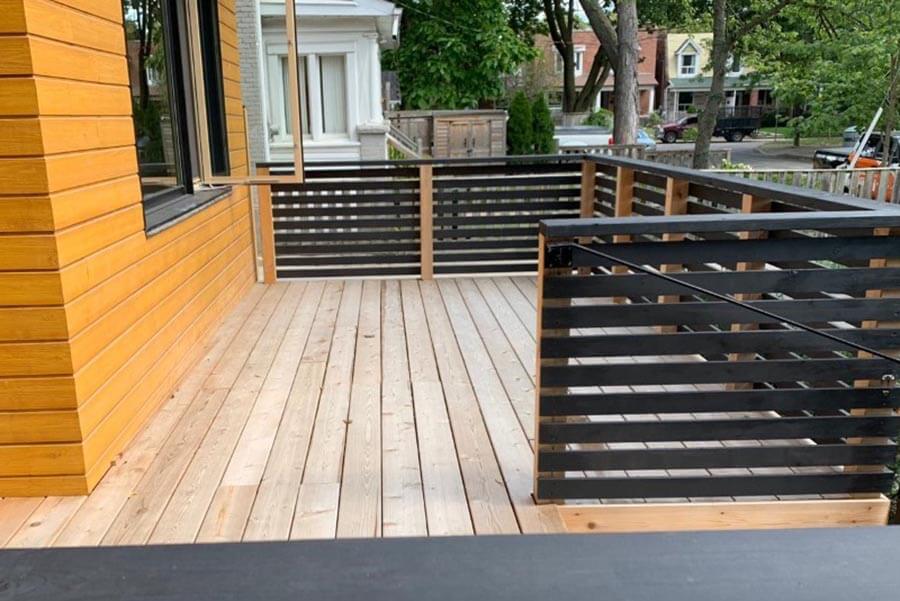
6. Decking Around a Fire Pit
A fire pit surrounded by composite decking is the perfect feature for your York garden, offering a place for friends and family to gather on chilly evenings. The durability and low-maintenance nature of composite decking make it an excellent choice for areas around fire pits, as it can withstand heat and weathering.
- Tip: Choose a fire pit design that complements your deck style, whether it’s modern, rustic, or traditional.
7. Garden Pathways with Composite Decking
Use composite decking to create sleek and modern garden pathways that connect different areas of your garden. This innovative use of decking adds a stylish and durable touch to your landscaping. Composite decking’s slip resistance makes it a safe option for walkways, especially during rainy days in York.
- Tip: Combine decking with natural stone or gravel for a more textured, contemporary look.
8. Decking with Planter Boxes and Greenery
Integrate planter boxes into your composite decking design to bring greenery into your outdoor living space. Raised planters are perfect for growing flowers, herbs, or small shrubs, and they can be placed around the perimeter of the deck or even built into the structure itself. This adds color, texture, and a natural touch to your deck.
- Tip: Choose plants that thrive in York’s climate and are easy to maintain.
9. Sleek, Minimalist Decking Design
For a contemporary and minimalist look, opt for clean lines, simple furniture, and neutral-colored composite decking. This design approach keeps the focus on the beauty of the material and the surrounding garden, creating a calm and serene environment. Minimalist decks are perfect for modern homes in York that prioritize functionality over excess.
- Tip: Choose composite decking in shades of grey or natural wood tones to complement minimalist furniture and decor.
10. Decking with Outdoor Kitchen or Bar Area
Take your outdoor entertaining to the next level by adding an outdoor kitchen or bar area to your composite deck. Whether it’s a simple barbecue station or a fully equipped outdoor kitchen, composite decking provides a sturdy and stylish base for these functional spaces. This is ideal for hosting gatherings, barbecues, or even outdoor cooking classes.
- Tip: Consider adding an outdoor sink, countertop, or fridge to make the space even more functional.
Conclusion
Composite decking in York gardens offers endless possibilities for creativity and design. Whether you want to create a multi-level outdoor retreat, a modern garden pathway, or an outdoor kitchen, composite decking’s durability, versatility, and low maintenance make it the perfect choice. By incorporating lighting, built-in seating, greenery, or fire features, you can transform your outdoor space into a beautiful and functional area that you can enjoy year-round. With these 10 creative ideas, your garden can become the ultimate place for relaxation, entertainment, and outdoor living.
